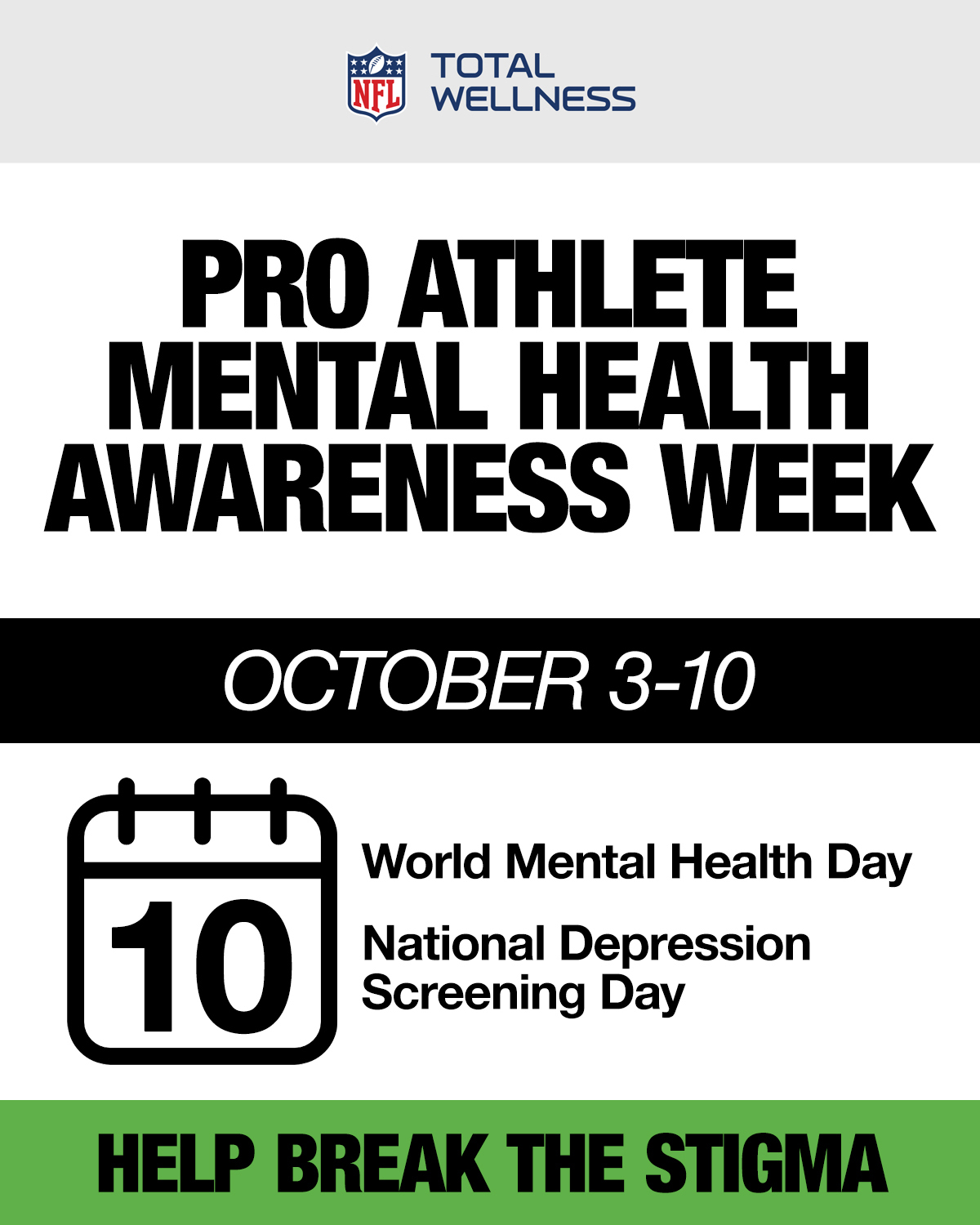
Every October 10 is recognized by the World Federation for Mental Health as World Mental Health Day, and this year’s theme is “It is time to prioritize mental health in the workplace”.
Every October 10 is recognized by the World Federation for Mental Health as World Mental Health Day. This year’s theme, “It is time to prioritize mental health in the workplace” serves as a fitting culmination to Professional Athlete Mental Health Awareness week, an initiative designed to promote mental health awareness, literacy, education, and resources in the workplace of professional sports.
Given the amount of time that most of us will spend in the workplace over the course of our lives, it’s important that organizations strive to become places where all employees can productively contribute and flourish. Unfortunately, this is not always the case—poor mental health is one of the greatest contributors to workplace absenteeism, and for too many, the work environment can be a place of toxicity and a source of unmanaged stress.
In the world of professional sports—similar to many high performance cultures—“mental health at work” often becomes an afterthought, only brought to the forefront when a crisis happens. A healthy work environment can serve as a protective factor for mental health. In contrast, lack of support, stigma around help seeking behaviors, discrimination, and other poor working conditions can lead to negative mental health outcomes and decrease performance.
This year’s theme serves as a reminder of the importance of taking a proactive approach to mental health at the individual and organizational level, not just on this day, but throughout the year.
Here are four ways that all organizations, including those in the fast paced, high-pressure world of professional sports, can prioritize, protect, and promote mental health in the workplace:
Offer opportunities for staff to enhance their mental health literacy. Health literacy, including mental health literacy, contributes to more positive health outcomes. Providing standardized mental health trainings like Mental Health First Aid, QPR, or ASIST in the workplace demonstrates a willingness to invest both the time and resources to offer this education to employees. It also equips employees with the skills to better support themselves and their coworkers.
Provide and promote resources that contribute to positive mental health. These resources should be expansive and include traditional options through robust mental health benefits, as well access to complementary approaches such as mindfulness-based interventions, and yoga, for example.
Consider the full mental health continuum: The mental health discussion should not be limited to the crisis end of the mental health continuum. When the conversation about mental health spans the full range of the continuum, it allows employees to view mental health as important to everyone, not just those who may have mental health challenges.
Ensure consistency in both messaging and action. It’s not uncommon for organizations to send mixed messages as it relates to mental health. For example, employees may be encouraged to seek “work-life balance”, use vacation time, or ask for help. However, those choices may come at a cost: fewer opportunities for advancement or promotion, as well as the risk of being viewed as “weak” and “lacking grit”. When there is inconsistency between actions and words, actions always speak louder.
Learn more about mental health at work and World Mental Health Day 2024.